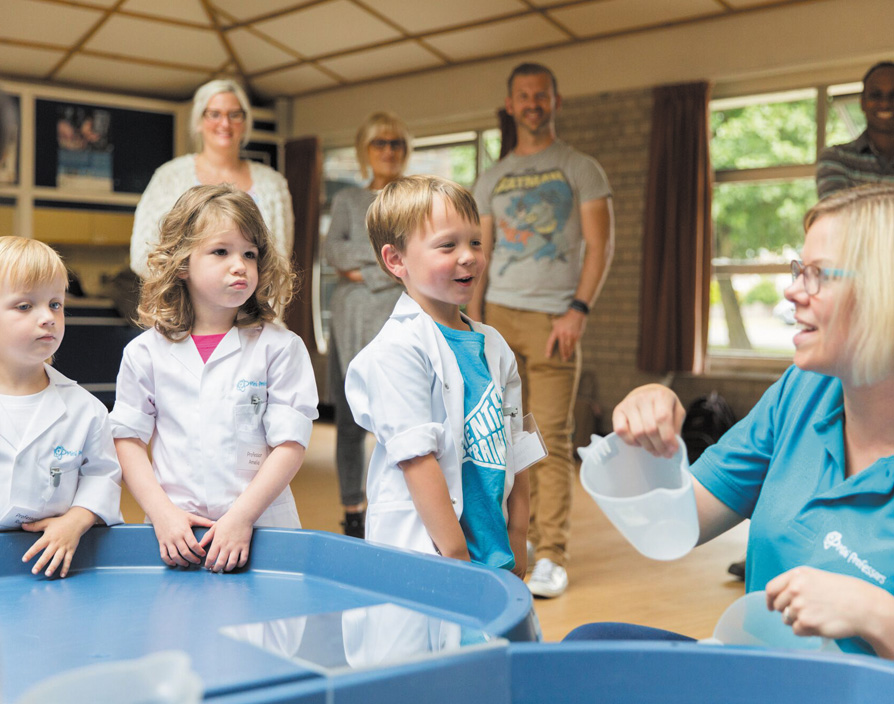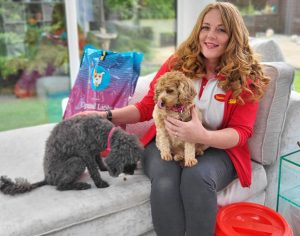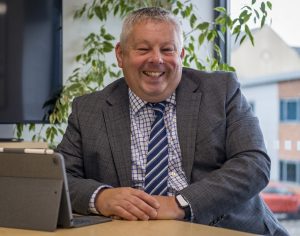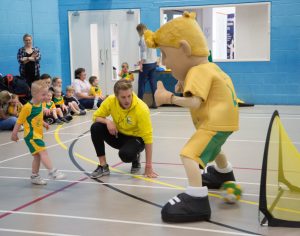With scientific and technological advancements becoming increasingly ubiquitous, it’s imperative for children to have a strong foundation in the subject early on. And when two friends, Emily Whyte and Sophie Allnut, had their respective children and took them to baby classes, they saw a gap in the educational industry. “That’s when we started thinking maybe we could do something science-based because no one had ever done it for children as young as two,” Whyte remembers. And hence the two science professionals launched Mini Professors, the science lessons franchise for preschoolers, in January 2013. “It was kind of ideal for children because they’re naturally curious and like experimenting,” she adds.
The duo’s entrepreneurial journey began after they were made redundant by pharmaceutical company Lilly, as it shifted its Basingstoke-based manufacturing unit abroad. This forced the pair to explore new ideas – ones which would allow them to work sans the long hours. “So it was kind of having children and the lack of opportunities and not wanting to go back to quite an intense corporate atmosphere,” Allnut states, shedding light on their thought process.
The underlying reason for Allnut and Whyte to start the company was because they realised how important it is for children to develop an appreciation of science. Moreover, they wanted to encourage girls to study STEM subjects. “When we first started, we had a little girl who said ‘Am I allowed to be a scientist because I’m a girl?’ and it made [us] realise that media portrays scientists as male a lot of the time,” Allnut argues. “So in our classes we tend to have girls and boys in equal measure in the videos and everything we show.” Along with having equal representation in their study material, the children see the female founders as role models as they’re the ones teaching. “It puts it in their mind that it’s normal to be a scientist if you’re a woman and it really helped with trying to bridge the gender divide,” Allnut adds.”
Interestingly, having a venture which encourages children impacted their own families too. “I’ve got three girls myself and it’s been really inspirational for them to see their mum [create] something like this,” Whyte says, adding that her personal experience was another reason she’s persistent on changing the imbalance prevalent in the science sector. “We faced sexism in the industry ourselves and it was very male-dominated. We’re very determined to try and balance it out.”
During the infancy stages, sourcing money was tough. And Allnut and Whyte chose to keep their investment down to reduce potential risks, so they used household items which didn’t require much money. Additionally, they received a council grant of £1,500 which equipped them with the necessary essentials like laptops. They also saved on expensive rent as they secured a space in the local library for a minimal price thanks to its manager. “He was more interested in getting children into the library than making money out of us and we’re very lucky to get someone like that behind us,” Allnut remembers. “It’s getting these lucky breaks and people who appreciate what you’re trying to do.” And after the classes started attracting more children, it meant they had more money to reinvest into the company.”
However, funding wasn’t the only stumbling block. Persuading parents to sign up for the classes was an uphill trek. “We also had to convince the customer that children as young as two can get involved with science,” Whyte says. “Most people assume they’re too young but then they come to the lessons and see how interesting it is. We’ve had feedback that kids go back home [from our classes] and repeat things they [have] learnt to their parents which means they’re taking it in.”
Despite these obstacles, the two were ambitious to see children across the UK and the world attend these classes. Consequently, they realised franchising would be ideal. They started by thinking about investing into a franchise mentor but quickly saw the drawbacks. “We saw how it would take longer and we didn’t want anyone to copy our idea,” Allnut says. “We felt once it was out there, people might – with more money – try to do this sort of thing.” As a result, they decided to approach preschool franchise Baby Sensory for advice and impressed the franchise manager with their idea. And after a meeting with Ian Sharland, co-founder of the Wow World Group, the multi-brand franchisor which owns Baby Sensory, they signed a partnership with the company in 2014 where Sharland and his co-founder Lin Day joined the Mini Professors board as directors.”

Varsha Saraogi
As feature writer and a recent MA Journalism graduate, Varsha has joined the Elite team to fuel her passion. Along with being immersed in the money making sector and ranting about women's rights, she will be hunting for news about everything business related. And burying her head in economic magazines. Follow her on twitter at @msvarshasaraogi for her mundane musings.

Varsha Saraogi
As feature writer and a recent MA Journalism graduate, Varsha has joined the Elite team to fuel her passion. Along with being immersed in the money making sector and ranting about women's rights, she will be hunting for news about everything business related. And burying her head in economic magazines. Follow her on twitter at @msvarshasaraogi for her mundane musings.


































